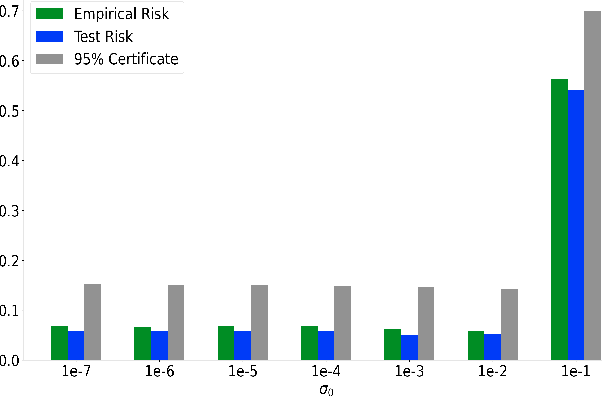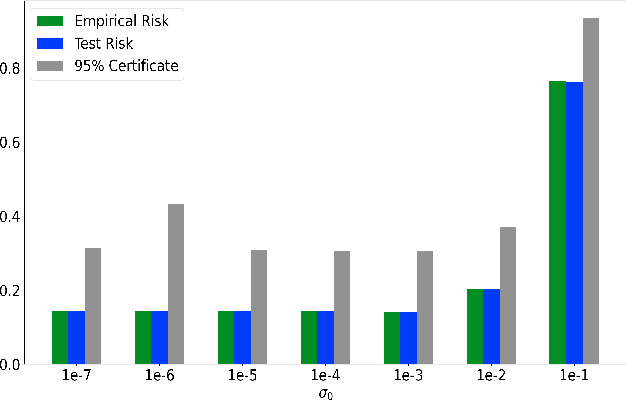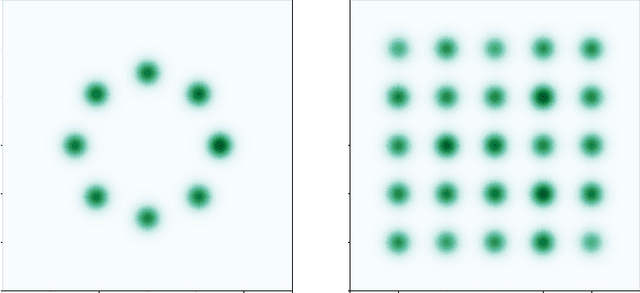Florence Clerc
Statistical Guarantees for Variational Autoencoders using PAC-Bayesian Theory
Oct 07, 2023



Abstract:Since their inception, Variational Autoencoders (VAEs) have become central in machine learning. Despite their widespread use, numerous questions regarding their theoretical properties remain open. Using PAC-Bayesian theory, this work develops statistical guarantees for VAEs. First, we derive the first PAC-Bayesian bound for posterior distributions conditioned on individual samples from the data-generating distribution. Then, we utilize this result to develop generalization guarantees for the VAE's reconstruction loss, as well as upper bounds on the distance between the input and the regenerated distributions. More importantly, we provide upper bounds on the Wasserstein distance between the input distribution and the distribution defined by the VAE's generative model.
PAC-Bayesian Generalization Bounds for Adversarial Generative Models
Feb 17, 2023



Abstract:We extend PAC-Bayesian theory to generative models and develop generalization bounds for models based on the Wasserstein distance and the total variation distance. Our first result on the Wasserstein distance assumes the instance space is bounded, while our second result takes advantage of dimensionality reduction. Our results naturally apply to Wasserstein GANs and Energy-Based GANs, and our bounds provide new training objectives for these two. Although our work is mainly theoretical, we perform numerical experiments showing non-vacuous generalization bounds for Wasserstein GANs on synthetic datasets.
 Add to Chrome
Add to Chrome Add to Firefox
Add to Firefox Add to Edge
Add to Edge